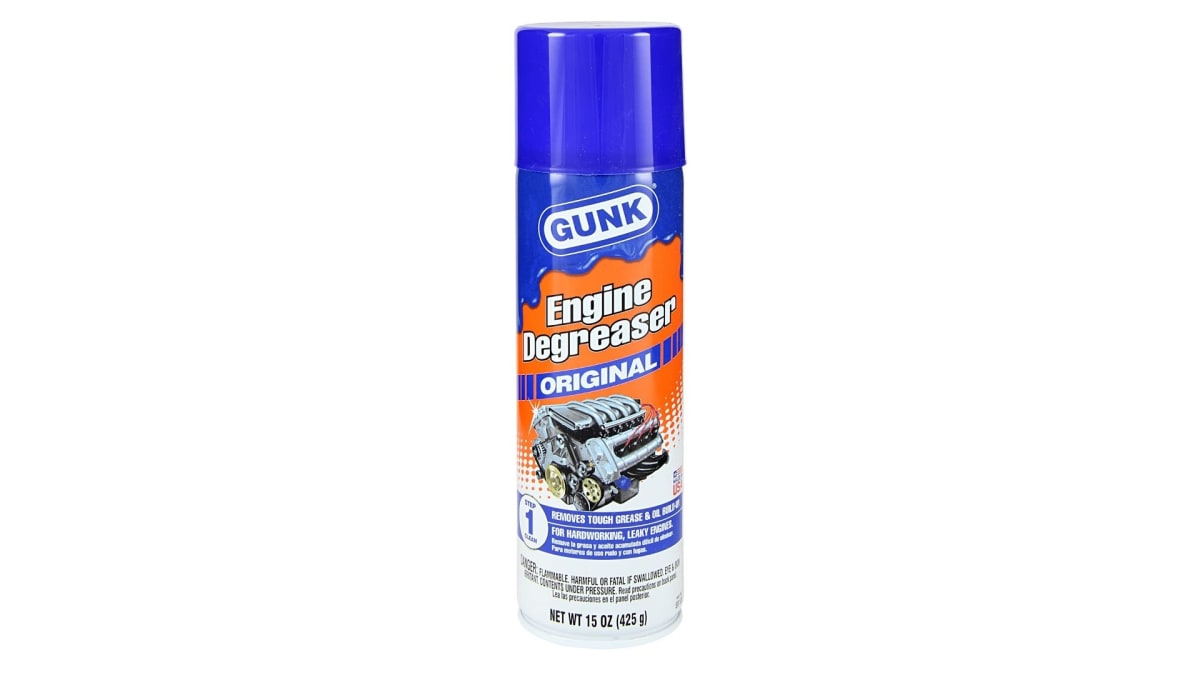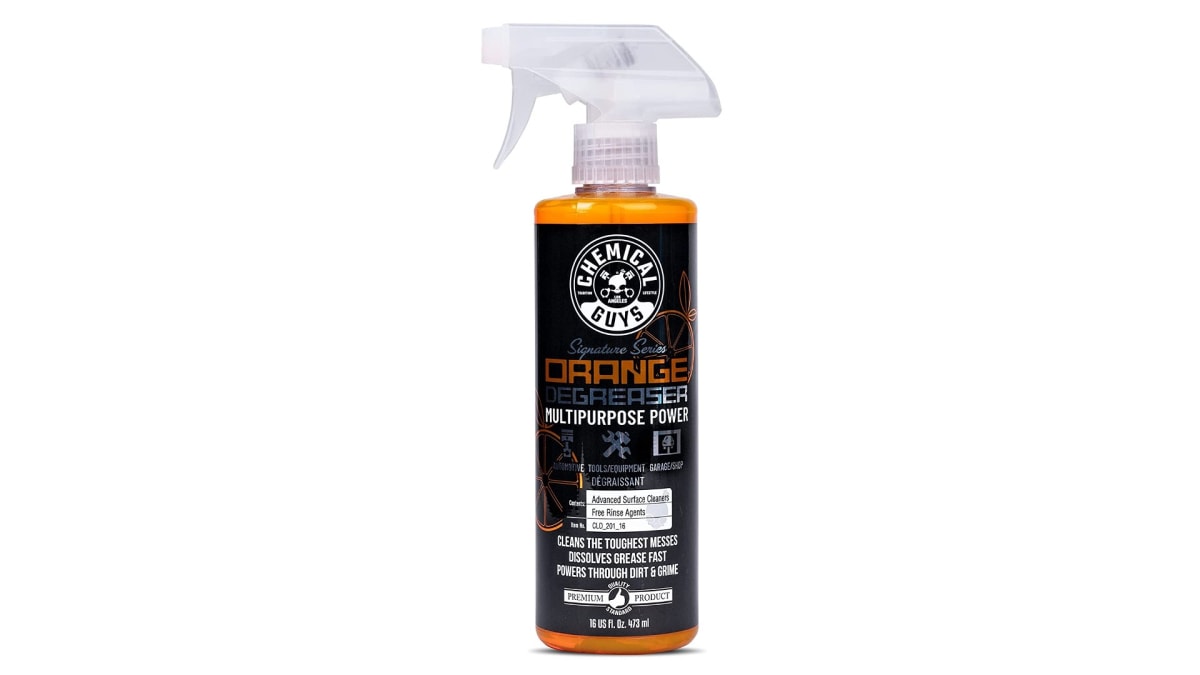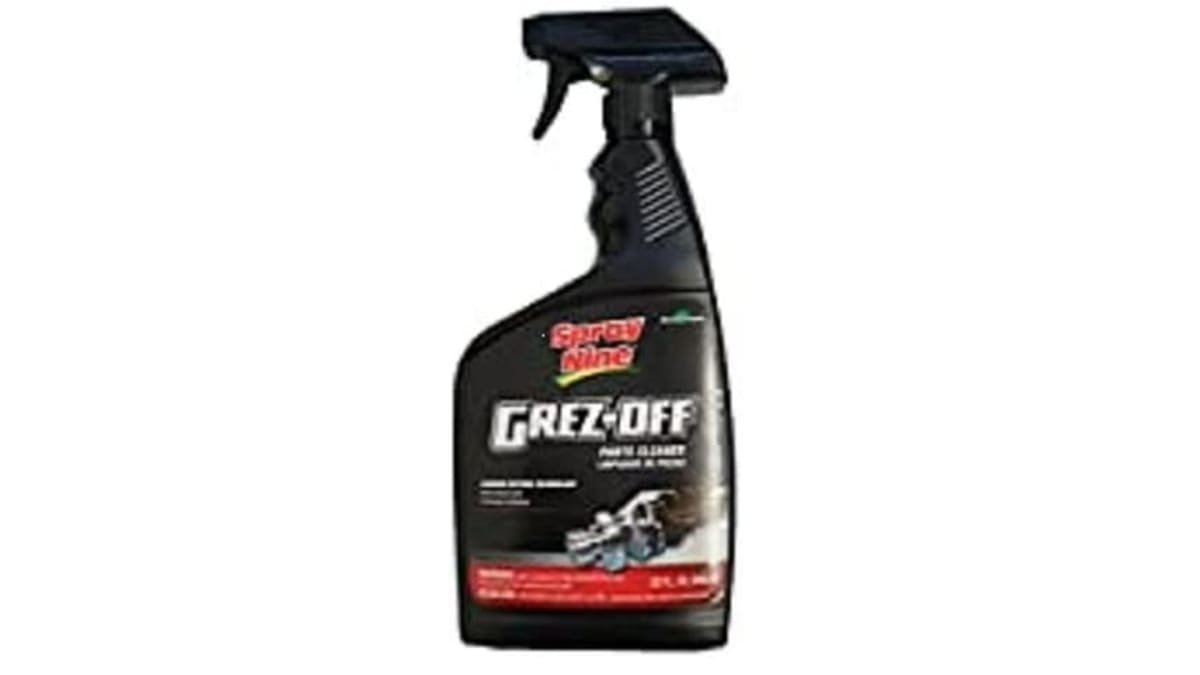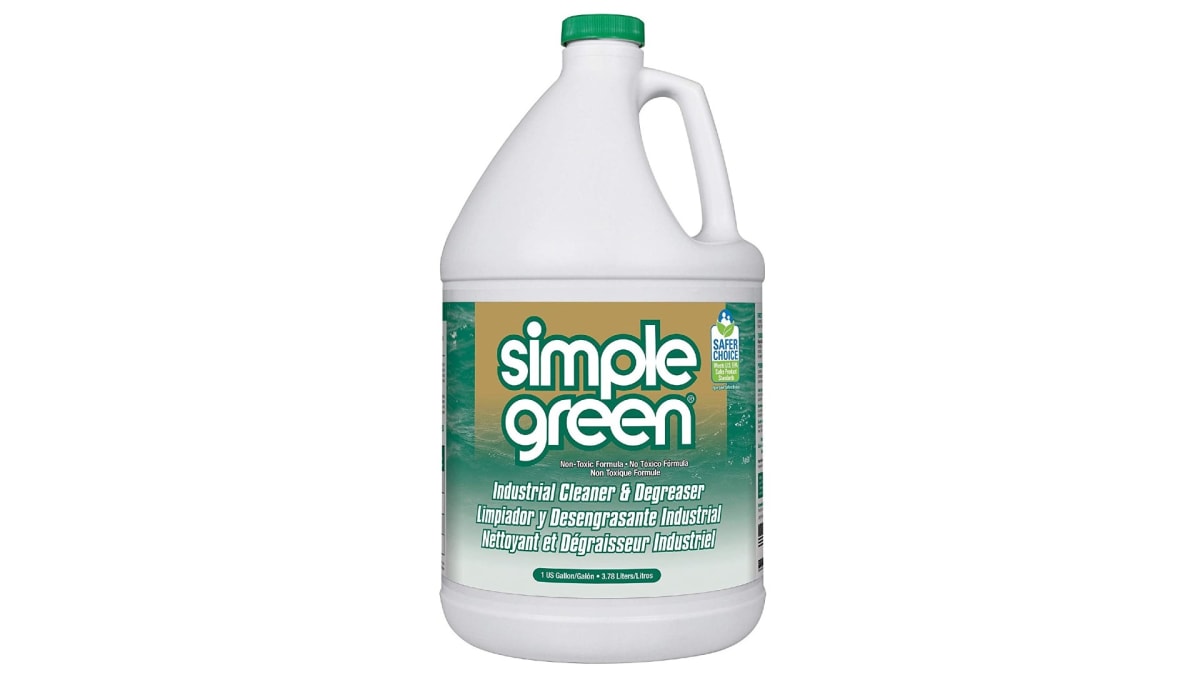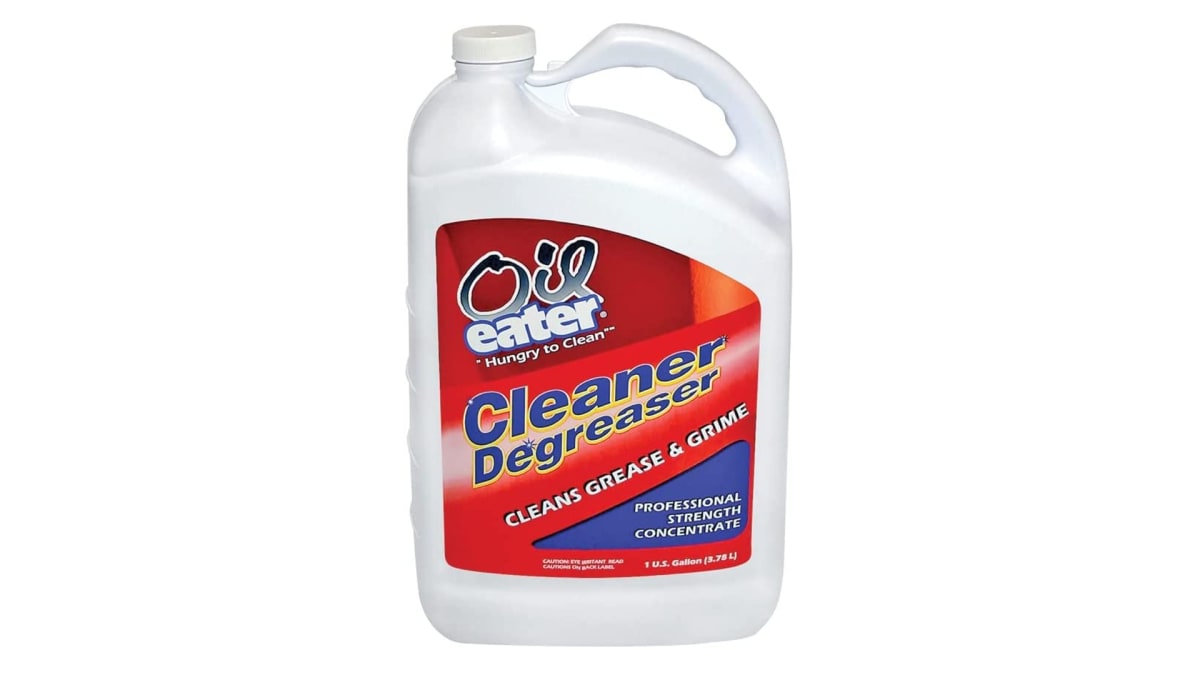Autoblog is not affiliated with the brands featured in our articles, but when you make a purchase through links on our site we may earn a commission.
Engine degreasers are vital for keeping your car functioning properly. Have a look at our top picks and tips for finding a great engine degreaser. Having a car is pretty much a necessity, especially when you need to get to work five days a week. While having a vehicle is in many ways efficient and convenient, maintaining a car can be quite tricky. Cars tend to develop all sorts of wear and tear over time, and without proper care, your vehicle can develop numerous issues. Many problems can occur, but one of the most significant issues is grease and oil debris building up on your engine. If left unresolved, this debris can cause serious damage to your engine and lead to malfunction.
One simple solution to avoid such problems is to regularly maintain your car with an engine degreaser. Finding the right degreaser can be a daunting task, so to make this process easier we’ve compiled a list of some of the leading engine degreasers as well as a helpful buying guide.
Here are the top engine degreasers of 2022
Gunk EB1CA Engine Degreaser: Great pick
This engine degreaser has a fitting name, and it’s one of the strongest cleaning agents available on the market. Made with powerful degreasing solvents, this Gunk engine degreaser will not only clean your engine but will also remove all the dirt, grime, grease, and engine “gunk” from it. Thanks to its heavy-duty formula, this engine degreaser doesn’t require much manpower to use and easily dissolves grease without much effort. Just rinse the degreaser off with water and it’ll remove all the dirt, leaving behind a clean engine. Simply apply it generously to the targeted area and wait about 10 minutes so that it can dissolve the gunk from your engine. After that, rinse it off thoroughly to remove any residual grease, and just like that your engine will be as good as new.
Pros
- Powerful, heavy-duty cleaning agent
- Easy to use
- Great value for your money
Cons
- Formula is flammable
Chemical Guys Degreaser: Great value
Made with a citrus-based formula, this Chemical Guys engine degreaser can offer you great value for your money. It’s a highly concentrated agent that’s designed to clean automobile parts including engines, tools, tires, rims, and much more. Thanks to its heavy-duty formula, it quickly loosens grease and emulsifies it for better cleaning. With its citrus base, this engine degreaser gives off a pleasant “orangey” fragrance. Not only can you use it as it is right out of the box, but you can also dilute it for other things like household cleaning. The degreaser’s spray nozzle makes it highly easy to use, letting you target specific areas, and the formula breaks away any residual grime to help restore your vehicle’s shine.
Pros
- Versatile, multipurpose cleaner
- Wallet-friendly option — great value
- Convenient spray nozzle for targeted use
Cons
- Might be too strong for some surfaces
Spray Nine Engine Degreaser: User friendly
The Spray Nine Engine Degreaser liquid cleaner features a non-acidic formula manufactured with biodegradable ingredients that don’t contain any harsh petroleum solvents. Because it’s not petroleum-based, this cleaner is free from any unpleasant odors or unhealthy fumes, making this engine degreaser more convenient to use. This engine degreaser is a multi-surface cleaner that can be used on many materials and surfaces, including vinyl, asphalt, plastic, metal, and more. Its bottle features a trigger nozzle that makes it easier to hit your target, providing you with more control while using it. With no need for dilution, this engine degreaser is great for cleaning any greasy residue from machinery items like car engines and household stovetops.
Pros
- Petroleum-free cleaner
- Non-toxic formula
- Free from unpleasant smells and fumes
Cons
- Only available in one concentration
Simple Green Industrial Cleaner and Degreaser: Green pick
Made with non-toxic and non-flammable ingredients, this engine degreaser offers an effective, “green” working experience, and because it has a zero-alcohol and non-petroleum formula it’s not heavily abrasive. The pH range for this engine degreaser ranges from about 9.3 to 9.5, giving it alkaline properties. Its formula is designed with a pleasant sassafras scent that makes it stand out from other brands, and it’s quite versatile– you can use this cleaner on many surfaces, ranging from household machines to heavy-duty automobile engines.
Pros
- Pleasant sassafras smell
- Non-toxic, eco-friendly formula
- Can be used on multiple surfaces
Cons
- Concentration must be changed for use
Oil Eater Cleaner and Degreaser: Also consider
Made with biodegradable ingredients, the Oil Eater cleaner and degreaser is another great option that you can pick up today and get right to cleaning. It’s a highly concentrated liquid agent that can be used to effectively degrease and clean your engine and other parts of your car. You can use this engine degreaser to easily clean wheels, spare parts, stains, and exhaust hoods, and it’s also great for cleaning household items like grills, patio equipment, and even furniture. This engine degreaser is a water-based cleanser, which means it’s a bit gentler on machinery than similar non-water-based ones. You can use this engine degreaser’s dilution chart to achieve the optimum concentration according to your needs, and it comes in a large gallon bottle to give you a long-lasting supply.
Pros
- Versatile, multipurpose cleanser
- Safe water-based formula
- USDA-approved for food service facilities
Cons
- Diluting can be difficult
Buying guide: Engine degreasers
Now that we’ve covered some of the top engine degreasers on the market, let’s look at some tips that can help you make the right choice.
How to choose a high-quality engine degreaser
Here are some important factors you should consider when shopping for an engine degreaser:
Versatility
While engine degreasers are designed especially for automobiles, they can also be used for other purposes as well. This is why it’s important to look for a versatile option, as you might want to use one cleaner for multiple purposes. To cover all your bases, invest in a degreaser that targets different surfaces, like plastics, painted materials, and so on.
When you buy a versatile degreaser, you won’t have to buy separate cleaners for every surface you want to clean. If you experience any spillage in the garage, you can easily clean it up using the same product you use for your engine. You should know, though, that these multi-purpose cleaners tend to be on the milder side when it comes to their effectiveness, and this is because they target various materials. Keep this potential downside in mind, but in general multi-purpose and multi-surface cleaners can efficiently help you clean both your engine and other surfaces as well.
Fragrance
Engine degreasers are known for their pungent and foul odors. While this can make them unpleasant to use, this smell is proof that you have a working product — this signature smell is usually because of the cleaners’ petroleum base, and while this base has a bad smell, it’s important for breaking down stubborn grease.
You can also find engine degreasers with added fragrances to mask their smell, but it depends whether you want to invest in a mild product with a better smell or simply work through it and endure a powerful cleaner’s foul smell with a face mask.
Key ingredients
Just like any other cleaning agent, an engine degreaser’s ingredients are the most important thing to consider when shopping around, and you should buy something suitable for your needs. If you buy a mild cleaner, it won’t be enough to thoroughly degrease your car. If you instead invest in an excessively harsh product, it might cause damage to your vehicle. This is why it’s important to take a close look at the key ingredients and select something that’s right for your needs.
Most people generally prefer moderate cleaners and degreasers for home use. This is because such cleaners aren’t too harsh, but they aren’t too mild either and can get the job done efficiently.
Tips for choosing the right engine degreaser
Take a look at these tips to pick the right engine degreaser for your ride:
- If you’re planning to use your degreaser for other things besides your engine, invest in a multi-purpose cleaner
- Choose a product that’s easy to handle to avoid accidents
- Look for cleaners that are safe to use on paints, plastics, and other important surfaces
- If you plan on using the degreaser for a long time, buying a gallon (or larger) can be a good investment
- Always follow the manufacturer’s user guidelines to achieve optimum results
- If you’re working with strong chemicals, use protective wear to prevent any accidents
Types of engine degreasers
There are many types of engine cleaners on the market, but the following are the two most common types that you should know about, especially if you’re looking to pick up an engine degreaser yourself:
Water-based
Water-based engine degreasers are one of the most common forms of cleaning products. They usually tend to be a bit gentler and milder compared to their petroleum-based counterparts, but this doesn’t come at the cost of performance– water-based cleaners are just as effective when it comes to cleaning efficiency, and because of their mild detergents these cleaners can be used for multiple surfaces as well.
If you have a water-based engine degreaser, you can also use it to clean your car, garage, and tools as well. When water-based cleaners come in contact with other surfaces, they don’t cause any damage, unlike harsher cleaning agents. Although they can be a bit more expensive, water-based engine degreasers are a highly effective, eco-friendly option for cleaning your car.
Petroleum-based
Petroleum-based engine degreasers are a wallet-friendly option that’s widely available on the engine degreaser market. Compared to other agents, these cleaners tend to be pretty harsh– due to their strong petroleum base, these products are known to strip off any grease present on engines and other car parts.
Because of their highly abrasive nature, petroleum-based degreasers can be difficult to manage. You might need special equipment to manage them, as even a small slip-up can damage your car. What do we mean? If you’re using one and there’s accidental splashback of the cleaner on any painted surface, it will instantly damage the paint, which is why you should be careful when handling such strong agents. Despite these potential issues, their quality makes petroleum-based engine degreasers stand out, as they effectively clean your engine and get rid of any stubborn gunk and grease. If you want a heavy-duty degreaser that’s designed to intensely clean your ride, consider going for a petroleum-based degreaser.
Conclusion
Engine degreasers are very important to maintain your vehicle’s engine performance. Not only that, but they also help your engine’s durability and overall can improve it significantly. We’ve given you a few of our favorite engine degreasers along with some tips about what to be on the lookout for when choosing one, and we hope we made your job a little easier when it comes to finding the right engine degreaser for you and your vehicle.
Engine Degreaser FAQs
Q: Can engine degreasers damage your car?
Well, it depends on whether you correctly follow the manufacturer’s directions on the bottle or not. Many engine degreasers have specific concentration protocols, and this concentration balance helps remove all the grime and grease from your engine without damaging your car. If used properly, engine degreasers shouldn’t be harmful to car engines.
Q: How long do you leave the engine degreaser on?
After a thorough application of the engine degreaser, you should wait about 10 to 15 minutes before rinsing it off.
Q: Are engine degreasers necessary?
Yes, engine degreasers are very important when it comes to the maintenance of your vehicle. With constant usage, grease and grime tend to build up on the engine. To avoid damaging your car, it’s important that you clean and remove grease from your engine with a high-quality cleaning agent.
Source: www.autoblog.com

